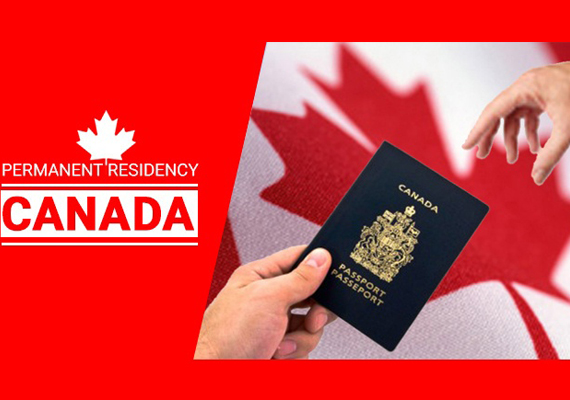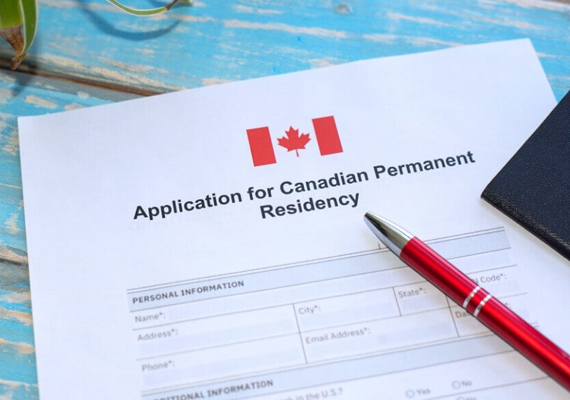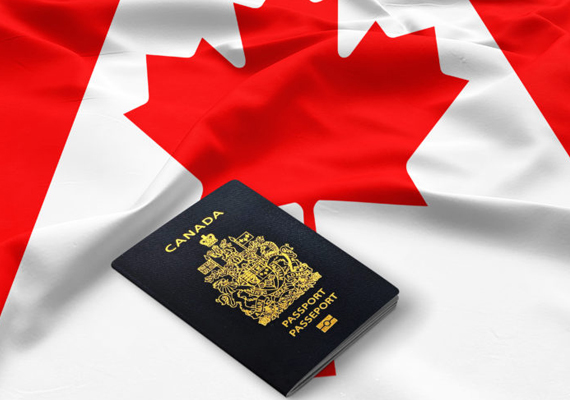Permanent Residence
What is permanent residence status in Canada?
Permanent residence status in Canada allows individuals to live, work, or study anywhere in the country indefinitely. This status provides many of the same benefits as Canadian citizens, including access to healthcare, education, and social services. However, permanent residents cannot vote or hold certain government positions in federal elections. Permanent residence can be obtained through immigration programs such as Express Entry, family sponsorship, or provincial nominee programs, representing a crucial step towards eventual Canadian citizenship.
What are the different pathways to obtaining permanent residence in Canada?
The Express Entry System is like a scoring system for people applying to move to Canada through three different work programs: one for skilled workers, one for skilled tradespeople, and one for those with Canadian work experience.

The Provincial Nominee Program (PNP) enables Canadian provinces and territories, except Quebec, to select individuals they want to live and work there. Selection is based on the specific job vacancies and skills needed in the province.
Through family sponsorship, Canadian citizens and permanent residents can support the immigration of their spouses, common-law partners, dependent children, parents, and grandparents.
Quebec operates its own immigration programs and eligibility criteria. Those wishing to reside in Quebec must apply through the Quebec Skilled Worker Program or other province-specific immigration pathways designed to meet its unique needs.
Can I apply for permanent residence as a skilled worker?
Yes, you can apply for permanent residence in Canada as a skilled worker through various immigration programs. One of the most popular pathways is the **Federal Skilled Worker Program (FSWP)**, which is part of Canada’s Express Entry system.
### What is FSWP?
The **Federal Skilled Worker Program (FSWP)** is designed for skilled workers who have the education, work experience, language proficiency, and other attributes required to contribute to Canada’s economy. It is one of the key federal economic immigration pathways.
Candidates eligible for the FSWP create an Express Entry profile and are ranked based on the **Comprehensive Ranking System (CRS)**. Those with the highest CRS scores are invited to apply for permanent residence in Canada.
The FSWP evaluates candidates based on factors such as education, work experience, language proficiency in English or French, age, arranged employment in Canada, and adaptability. Meeting the minimum eligibility criteria in these areas is essential to qualify. Once selected, applicants can apply for permanent residence, undergo medical and security checks, and, if approved, become Canadian permanent residents.

How do I apply for a visitor visa?
It depends on the specific immigration program. In many cases, particularly for permanent residency (PR) applications, you may need to show sufficient funds to support yourself and your family while settling in the country. This is to ensure that you won’t become a burden on the social welfare system of the country you’re immigrating to.
The prerequisites can differ significantly based on the size of your family and the specific visa category you’re applying for. It’s crucial to thoroughly review the particular requirements of the immigration program you’re interested in to ensure compliance with all necessary criteria.
How do I apply for a visitor visa?
he Permanent Resident (PR) Card is typically valid for five years in Canada. However, the validity period may vary depending on the individual’s specific circumstances.
To uphold your permanent resident status in Canada, you must meet the residency obligation, meaning that you must be physically present in Canada for at least two years within a consecutive 5-year period.
It doesn’t necessarily mean you lose your permanent resident status if you don’t meet the residency obligation or if your PR card expires. You may still be able to renew your PR card or apply for a travel document to return to Canada if you’re outside the country.
It’s mandatory to keep track of the expiration date of your PR card and take the necessary steps to renew it before it expires to avoid any complications with your immigration status in Canada.
ELIGIBILITY FOR PR CARD RENEWAL
To be eligible for renewal of a Permanent Resident (PR) Card in Canada, you typically need to meet the following criteria:
- Residency Requirement: You must have met the residency obligation, which generally means you must have been physically present in Canada for a minimum of 730 days, equivalent to 2 years, within the last five years. If you have been living outside Canada for an extended period, you may need to provide evidence of ties to Canada or exceptional circumstances that prevented you from meeting the residency requirement.
- Valid PR Status: Your permanent resident status must still be good. If your status has expired or been revoked, you must address those issues before applying for a PR card renewal.
- No Unfulfilled Conditions: You must not be subject to any unfulfilled conditions related to your permanent resident status, such as conditions imposed upon landing in Canada.
- No Criminal Convictions or Immigration Violations: You must have no criminal convictions or immigration violations. That would render you inadmissible to Canada.
- Application Fee: You must pay the applicable fee for the PR card renewal.
- Submission of Required Documents: You must submit a complete application package, including any required supporting documents, photographs, and forms, per the instructions provided by Immigration, Refugees, and Citizenship Canada (IRCC).
- To renew it, it is crucial to make sure you go through the requirements and instructions provided by IRCC. Make sure you meet all the eligibility criteria and submit an accurate application if you are still determining any aspect of the process.
What is the benefit of permanent residence in Canada
Obtaining permanent residence in Canada offers several advantages:
Right to Live and Work:
Permanent residents in Canada enjoy virtually all the same rights and privileges as Canadian citizens, except the ability to vote and eligibility for specific governmental roles.
Access to Social Services: Permanent residents are eligible for various social benefits, including healthcare coverage through Canada’s publicly funded healthcare system, education benefits, and social assistance programs.
Pathway to Citizenship: Permanent residency is often a pathway to Canadian citizenship. After meeting specific residency requirements, permanent residents can apply for citizenship, which grants additional rights, such as the ability to vote and obtain a Canadian passport.
Protection under Canadian Law: Permanent residents are safe and benefit from the country’s legal system, which upholds fundamental rights and freedoms.

Protection under Canadian Law: Permanent residents are protected by Canada’s legal system, which guarantees fundamental rights and freedoms.
Employment Opportunities: Permanent residency opens up more employment opportunities, as many employers prefer hiring individuals with permanent resident status due to their long-term commitment to Canada.
Family Sponsorship: Permanent residents can sponsor their family members to come to Canada as permanent residents, allowing for family reunification.
Travel Benefits: Permanent residents can travel in and out of Canada more freely compared to temporary residents.
Overall, permanent residency in Canada offers stability, security, and valuable opportunities for both individuals and their families to build a brighter future.
